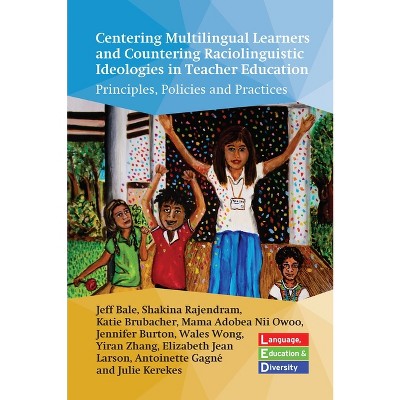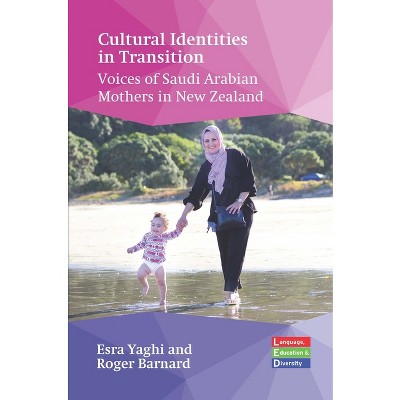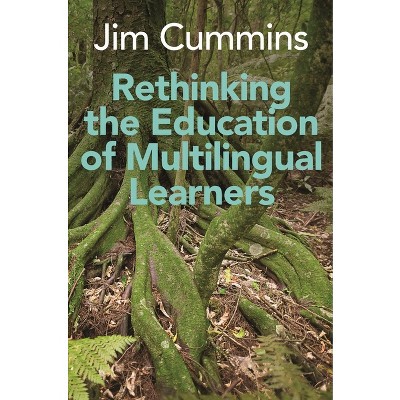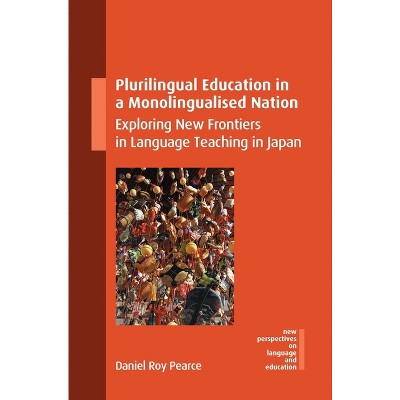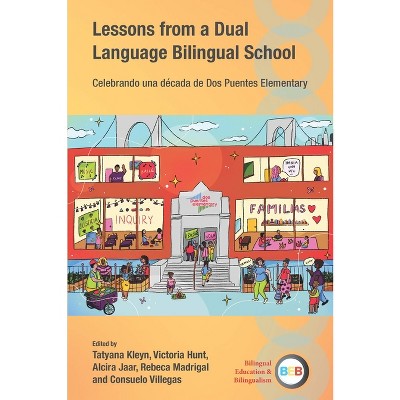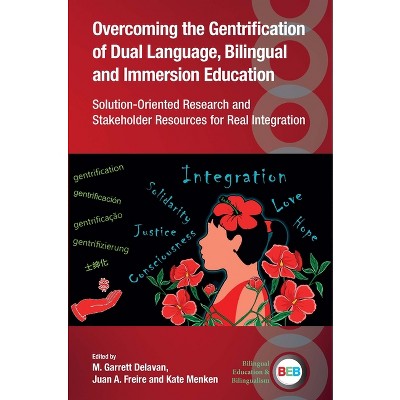Indigenous Language Education in Critical Times - (Language, Education and Diversity)

About this item
Highlights
- This book builds a space in which a diversity of voices - Indigenous teachers, activists and committed academics - are foregrounded in the processes of Indigenous education and language reclamation.
- About the Author: Julieta Briseño-Roa is Professor-Researcher at the Centro de Investigaciones y Estudios Superiores en Antropología Social (CIESAS), Mexico.
- 238 Pages
- Language + Art + Disciplines, Language Arts
- Series Name: Language, Education and Diversity
Description
About the Book
This book builds a space in which a diversity of voices - Indigenous teachers, activists and committed academics - are foregrounded in the processes of Indigenous education and language reclamation. It decenters state systems of education, thereby emphasizing diverse processes of language reclamation in complex and varied settings.
Book Synopsis
This book builds a space in which a diversity of voices - Indigenous teachers, activists and committed academics - are foregrounded in the processes of Indigenous education and language reclamation. It decenters state systems of education, thereby emphasizing diverse processes of language reclamation in complex and varied settings.
Review Quotes
Immersing oneself in this powerful collection of transcultural narratives of resilience and persistence in the daily context of 'uneasy co-habitation of severely threatened "local" languages alongside dominant "global" ones' is to become embraced in an empowering experience of solidarity with the storyteller-authors. Solidarity in tenacity of spirit - qatsi'nangwa, in the Hopi sense, as 'the will to survive' through our gifts of languages.
The Americas are expansive, beautiful, and resilient human and more than human communities. Life is always languaged here, and the authors in this volume bring forward this recognition through lived experience. They share lessons and ideas embedded in powerful stories and narratives. Carefully stewarded by dedicated editors, this collection is a delight to read and an inspiration to remember.
Immersing oneself in this powerful collection of transcultural narratives of resilience and persistence in the daily context of 'uneasy co-habitation of severely threatened "local" languages alongside dominant "global" ones' is to become embraced in an empowering experience of solidarity with the storyteller-authors. Solidarity in tenacity of spirit - qatsi'nangwa, in the Hopi sense, as 'the will to survive' through our gifts of languages.-- "Sheilah E. Nicholas, University of Arizona, USA"
The Americas are expansive, beautiful, and resilient human and more than human communities. Life is always languaged here, and the authors in this volume bring forward this recognition through lived experience. They share lessons and ideas embedded in powerful stories and narratives. Carefully stewarded by dedicated editors, this collection is a delight to read and an inspiration to remember.-- "Elizabeth Sumida Huaman, University of Minnesota, USA"
About the Author
Julieta Briseño-Roa is Professor-Researcher at the Centro de Investigaciones y Estudios Superiores en Antropología Social (CIESAS), Mexico. She considers it fundamental to contribute to land-based education as a form of cultural reclamation, defense of the territory and action against the climate catastrophe.
Paulina Griñó is Professor in the Facultad de Educación, Universidad Autónoma de Chile. She is part of educational initiatives which reconnect community knowledge with school curricula.
Vanessa Anthony-Stevens is an Associate Professor in the Department of Curriculum and Instruction at the University of Idaho, USA. Her more than 20-year career in Indigenous education and Tribal Nation-building efforts centers on practices and policies of educational sovereignty.
José Antonio Flores Farfán is Professor in the Centro de Investigaciones y Estudios Superiores en Antropología Social (CIESAS), Mexico. Over several decades he has worked with Indigenous communities to produce materials which vindicate the use of minoritized languages.






